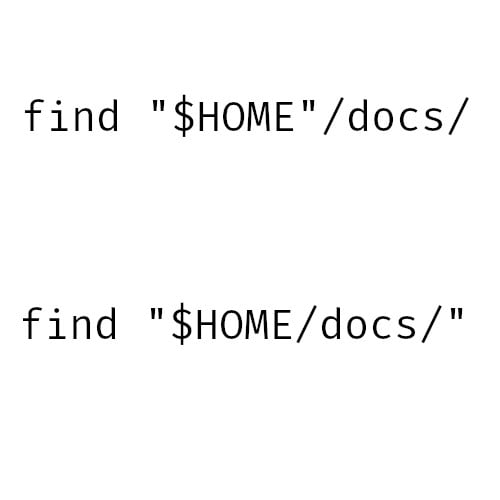this post was submitted on 26 Aug 2023
65 points (94.5% liked)
Programming
17443 readers
157 users here now
Welcome to the main community in programming.dev! Feel free to post anything relating to programming here!
Cross posting is strongly encouraged in the instance. If you feel your post or another person's post makes sense in another community cross post into it.
Hope you enjoy the instance!
Rules
Rules
- Follow the programming.dev instance rules
- Keep content related to programming in some way
- If you're posting long videos try to add in some form of tldr for those who don't want to watch videos
Wormhole
Follow the wormhole through a path of communities !webdev@programming.dev
founded 1 year ago
MODERATORS
you are viewing a single comment's thread
view the rest of the comments
view the rest of the comments


This has never stuck with me, and I hadn't thought about why until now. I have two reasons why I will always write
${x}_$y.zinstead of${x}_${y}.z:$x_being expanded as${x_}."$#array[3]"actually prints the length of the third item inarray, rather than (Bash:) the number of positional parameters, then the string'array[3]'.@gamma I just use them out of consistency and principle, so I don't need to think in which case it is required or not.
The difference between the two seems different to what's in the OP. Is there a typo here?
My reply is to a commenter who said they prefer
"${HOME}/docs"over both options in the original image ("$HOME/docs"or"$HOME"/docs). Many people prefer to always include braces around the parameter name out of consistency, instead of only when they are required.My comment explained why my habit is to only include braces when they are necessary.